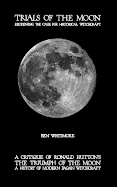 A thousand years from now, scholars will shake their heads knowingly and scoff at the legends of the great Bodhisattva army of Tibetan self-immolators. They will assure their colleagues and students that all such stories are just so much romaniticized nonsense.
A thousand years from now, scholars will shake their heads knowingly and scoff at the legends of the great Bodhisattva army of Tibetan self-immolators. They will assure their colleagues and students that all such stories are just so much romaniticized nonsense.Who could believe such things? Who could imagine such things? Who could do such things?
"There is no freedom in Tibet, His Holiness Dalai Lama is forbidden to return home. Panchen Lama [the second highest ranking Lama after the Dalai Lama] is in prison. Numerous Tibetan heroes have made the sacrifice of self-immolation. I don't want to live anymore, there is no meaning in living… We are the son of Snow Lion, the offspring of red face Tibetans. Please remember the dignity of Snow mountain."
"Tibet needs freedom and independence. Release Panchen and let Dalai return home. I self-immolate to protest against the Chinese government! Father, please don't be disheartened because of me. I follow the Buddha and Goodness. My wish is that six million Tibetans will learn their mother tongue, wear Tibetan clothes and be united."
"Greetings to my dear brothers and sisters, and especially my parents, the kindest of all in this world. I am setting myself on fire for the sake of Tibet. The long life of His Holiness the Dalai Lama must be assured. It is my wish that the sun of happiness may shine on the land of Tibet."
Sources:
Last Words of 19 Tibetans Who Committed Self-Immolation (fromGlobalVoicesOnline.Org).
"May the sun of happiness shine on Tibet," a self-immolator’s last words (from Phayul.Com)









